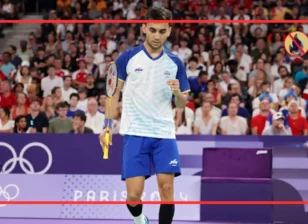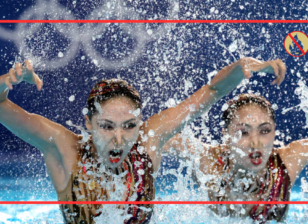French Strike Update: Demonstrations Rally Against Abaya Ban
In the wake of the recent controversy over the ban on traditional Muslim attire in Maurice Utrillo High School in Stains, Seine-Saint-Denis, a new wave of student protests has erupted throughout various French high schools. The French ban on wearing Abaya and Qamis, traditional Muslim garments, has sparked debate and accusations of Islamophobia and discrimination. This highlights the complex intersection of cultural, religious, and educational values in French society and highlights the challenges faced by the multicultural population in education and religious freedom.
Historical Context
France, known for its strong commitment to secularism, has a history fraught with tensions surrounding the presence of religious symbols in its public institutions, particularly in schools. The principle of laïcité, which advocates for the separation of church and state. It is deeply ingrained in the French educational system, aiming to foster neutrality and equality among students. Despite past debates and incidents reflecting the challenges of upholding secularism in diverse societies.
Debates over religious symbols in state schools have grown, particularly in the context of the country’s largest Muslim minority. Historically, the issue has focused on traditional Catholic symbols, but now includes Muslim headscarves, veils, and the Abaya and Qamis.
The Maurice Utrillo High School Incident
Maurice Utrillo High School, located in the impoverished suburb of Stains in Seine-Saint-Denis, has been at the centre of the recent controversy. The ban on the Abaya and Qamis, deemed as religious symbols, has stirred up a storm of criticism, particularly among the school’s Muslim student population and their families. The decision to enforce the ban was met with immediate resistance from the affected students, leading to a series of protests and a subsequent strike by the teachers in solidarity with the students.
Budgetary Issues and Cuts on Personnel
The Maurice Utrillo High School incident has brought to the forefront the underlying issues plaguing the French education system. Budgetary constraints and cuts on personnel have significantly impacted the quality of education in the country, especially in schools situated in underprivileged areas. In Seine-Saint-Denis, where the Maurice Utrillo High School is located, the challenges are even more pronounced. It gives the socio-economic difficulties faced by the residents, many of whom have ancestral ties to Africa and the Middle East.
The school administration’s decision to ban Abaya and Qamis, ignoring the cultural and religious sensitivities of the Muslim student body. It has exacerbated the already strained relationship between students and the administration, resulting in further alienation and marginalisation.
Secularism in Education and the Principle of Neutrality
While the principle of secularism in education remains a cornerstone of the French ethos. The interpretation and application of this principle have been a subject of intense debate, often leading to conflicts between the state and religious communities. The recent ban on the Abaya and Qamis, framed within the context of secularism. It has raised pertinent questions about the boundaries of religious expression and cultural identity within the educational framework.
Proponents of a dress code ban argue it maintains neutrality and prevents religious affiliations in public institutions, promoting inclusivity and equality. Critics view it as an infringement on Muslim community rights and discrimination against cultural and religious practices. They argue the ban stigmatises Muslim students and perpetuates a climate of Islamophobia, alienating an already marginalised group within French society.
Student Protests and Public Outcry
The controversial ban on the Abaya and Qamis has sparked student protests in Maurice Utrillo High School, Paris, with support from other schools. The protests, which have gained national and international attention, highlight religious discrimination and secularism limits in the French education system. The resilience and unity of French high school students reflect a growing concern for protecting religious freedoms and cultural diversity in education.
A Call for Dialogue and Understanding
The ongoing strike in French high schools and ongoing debates over a ban on religious education necessitate a nuanced approach that respects secularism, cultural diversity, and fundamental rights. The French government must uphold laïcité while safeguarding the rights of its multicultural population. A comprehensive, inclusive approach to education is crucial for a harmonious learning environment for all students, regardless of their cultural or religious backgrounds.
Conclusion
The Maurice Utrillo High School strike and protests against the ban on Abaya and Qamis highlight the challenges of maintaining secularism in a multicultural society. It emphasises the need for a balanced approach to addressing cultural and religious differences.
The French educational system upholds neutrality and secularism principles, but must respect the country’s diverse cultural fabric. Students are protesting for cultural expression and religious freedom, highlighting the need for open dialogue and mutual respect within the educational community.





